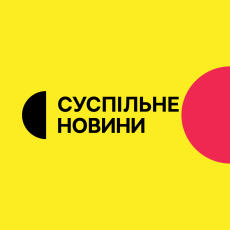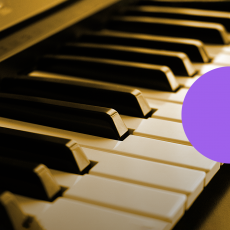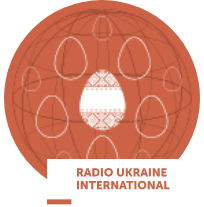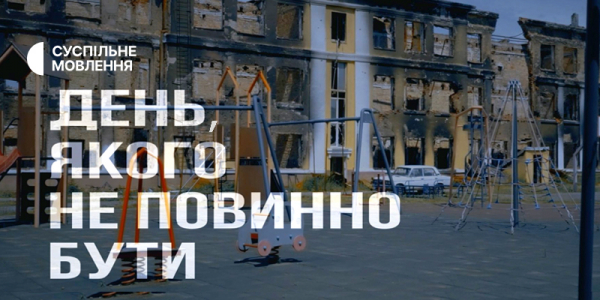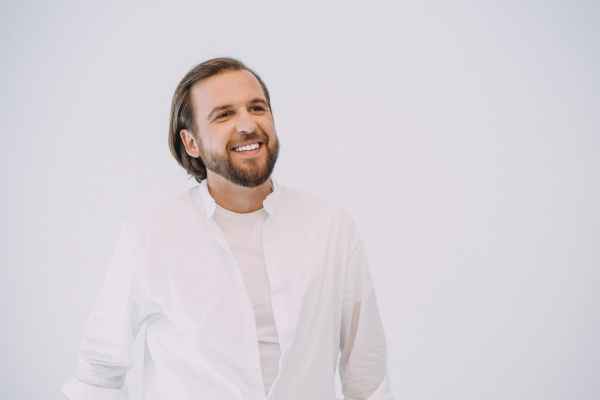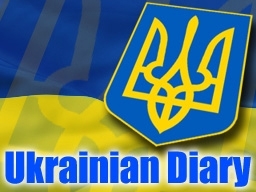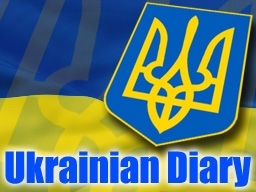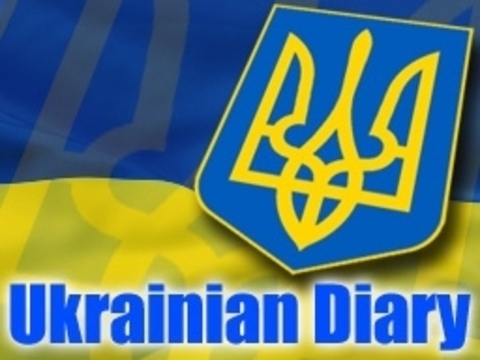1. Situation in Donbas – Weekly Review
The situation in the war zone in Ukraine’s East hasn’t seen any significant improvements over the past week. Russian-backed militants continued violating Minsk by using heavy weapons. Ukrainian army used non-banned weapons to quench the enemy fire. The number of enemy strikes in Donbas turned out more intense by the middle of the week. On Thursday the number of enemy strikes decreased, yet on Friday it jumped again. This week’s hottest spots were the villages of Hnutove and Vodiane in the Mariupol sector south of Donetsk, and the industrial town of Avdiivka north of Donetsk, as well as the frontline areas northwest and southwest of Luhansk.
DM press service also informed about a number of threats to the civilian population registered this week. A check point near the town of Maiorsk at the contact line in Donetsk region was shelled from the enemy’s side Tuesday evening. Civilians, who were queuing at the crossing point waiting for their turn to pass through, took to shelter and no one was hurt, while the checkpoint renewed its work on the next morning.
The JCCC informed about ceasefire violations in a number of residential areas in Donetsk region on Tuesday, which impeded the planned monitoring activities by representatives of the United Nations, as well as those by the OSCE SMM.
Speaking at a national expert forum in Kyiv on Tuesday, Interior minister Arsen Avakov had cited cited military intelligence reports reconfirming the presence of Russian regular troops in the separatist-held parts of the Donetsk and Luhansk regions.Arsen Avakov said, “In the uncontrolled parts of the Donetsk and Luhansk regions Russian troops are operating under the guise of armed formations of the so-called Donetsk and Luhansk republics. The 1st Army Corps of the Russian Armed Forces is operating in the Donetsk region and the 2nd Army Corps in the Luhansk region. Both corps belong to the 8th Army of the South Military Command of the Russian Armed Forces. They consist of local militants, mercenaries, and Russian military servicemen.”
According to him, both corps are heavily armed and well-equipped and are fighting in the first echelon and Russian regular troops are on standby behind them.
In the backdrop of warfare, humanitarian issued have also been discussed this week. A meeting of the TCG on CS in Eastern Ukraine has taken place in Minsk on Wednesday, where a statement on prisoner exchange had been adopted. Following the meeting, Martin Sajdik, the OSCE special envoy in the group, on CS in Eastern Ukraine told about the focus for The Humanitarian Issues Working Group during the meeting, namely the sides’ preparation for the exchange of detainees that is to be completed by the end of this year. On the basis of already approved lists, the sides are set to agree on the procedure and date of the exchange in the nearest future, together with representatives of the so-called “certain areas of Donetsk and Luhansk regions”, according to him. Meanwhile Alexander Hug, principal deputy chief monitor of the SMM to Ukraine has called on more tolerance and providing aid for the internally displaced migrants from Eastern Ukrainian war zone. At a press conference dedicated to the problem of the internally displaced persons held in Kyiv on Tuesday, Alexander Hug underlined the importance of providing all the necessary aid, including pensions and social payments to the IDPs, adding that this was also a matter of social unity that is vital for conflict resolution.
2. Moscow prolonged arrest of Roman Sushchenko.
The Moscow court has prolonged the arrest of Roman Sushchenko, Ukrainian political prisoner, for another 2 months. The Ukrainian Foreign Ministry stated that they will demand the release of the journalist and protest against such a decision of the court. At the same time, according to the lawyer Mark Feigin, the prolongation of the arrest was an expected outcome of the hearing.The lawyer said, “The investigation request filed before the court for the prolongation of detention until the 30th of January was approved. They asked me and Roman for two months to examine the materials of the criminal case and, accordingly, direct the case to the prosecutor's office.”
It is known that the lawyers will appeal the decision of the court after a thorough study of several volumes of the case. In the courtroom, Roman Sushchenko, Kremlin’s hostage, said that his lawyer was subjected to political pressure. At the same time Mark Feigin confirmed this kind of information. "For the whole summer, they were trying to deny my status of a lawyer," as Mark Feigin said. He believes that such pressure has a political goal.
FSB accuses Roman Sushchenko of espionage. He was illegally detained by Russian intelligence services a year ago in Moscow, where he came to for private affairs.
The Ministry of Foreign Affairs of Ukraine has already expressed its protest to the Russian Federation in connection with the continuation of the arrest of Roman Sushchenko. This was reported by the spokesman of the Ministry of Foreign Affairs of Ukraine Maryana Betsa. "We express our firm protest in connection with the decision of the Moscow City Court to extend the term of custody of Ukrainian journalist Roman Sushchenko for another two months until 30th of January, 2018," as she said in an interview with a Ukrainian TV channel.
Mariana Beta also commented on the details of the court hearing. "Once again, they denied the legal protection claim to cancel the preventive measure against Roman Sushchenko to another, which would not be related to detention.
This indicates the biased position of the so-called Russian judicial authorities. Closed court proceedings and rejection of the claim for admission of the consul to participate in the court hearing as a public defender demonstrate a political nature of the case ", - as the spokesman of the Ministry of Foreign Affairs said. As she emphasized, Ukraine urged its international partners to also influence Russia in order to release Roman Sushchenko and other political prisoners.
3. Kyiv Hosted the 50th General Assembly of the Parliamentary Assembly of the Black Sea Economic Cooperation.
On Wednesday head of the Ukrainian parliament Andriy Parubiy openedthe Fiftieth General Assembly of the Parliamentary Assembly of the Black Sea Economic Cooperation (PABSEC). The three-day event was held in Kyiv and was attended by the parliamentary delegations of 11 states, including Albania, Armenia, Azerbaijan, Bulgaria, Georgia, Greece, Moldova, Romania, Serbia, Turkey and the hosting country - Ukraine.
The Plenary Session focused on the boosting of eonomic cooperation in the context of Security Crisis in the Black Sea Region. In his opening speech the Ukrainian Prime minister stressed that the Parliamentary Assembly of the BSEC should recognize that Russia is the source of political tension in the region. Andriy parubiy said, “The philosophy of our activity lies in the boosting of the economic cooperation, development of our state and wealth of our citizens. And when a country - member of PABSEC pursues aggressive policy, occupies the territories of Georgia, Moldova and Ukraine, then it disrupts the basis and philosophy of our activity of our organization. And we should jointly respond to such actions of the aggressor – country.”
He reminded that the leading states of the world imposed the sanctions against Russia and constantly extend them and thanked the international community for the all-round support. ‘We think that the sanctions against Ukraine should continue and be extended until the complete restoration of the territorial integrity of Ukraine in accordance with the norms of the international law. The issue is not only about occupied Donbas but also about Ukrainian Crimea. The price of the rude violation of the international law and military aggression against other states should constantly increase for Russia’, - emphasized the Ukrainian speaker.
4. Ukraine to Boost Cooperation with Trans-Caspian Region
“Ukraine is ready to cooperate with its neighbors as well as with countriesof the Trans-Caspian and other regions in developing its transportcapacities and strengthening logistical ties with them,” Prime MinisterVolodymyr Groysman said on Tuesday at the Tbilisi Belt and Road Forum – abiennial international event providing a platform for discussions of variousimportant issues related to trade facilitation in the Caucasus-Caspianregion and beyond.
“We are confronted by very many challenges and we understand that in the future international trade is likely to be more liberal, so we have to do everything we can to maximally synchronize our infrastructure and harmonize our regulations in order to ensure quality, optimal time frames, and high security for the movement of goods,” Groysman said.
He also stressed the importance of developing domestic infrastructure capacities for the trading countries.In this context, he pointed to Ukraine’s stable, albeit slow, economicgrowth and its openness to trade with partners in trans-continentaltransport corridors.“Our state is and will remain a reliable partner, doing its part of the job.Our free trade agreement with the EU has been in effect for more than ayear, and Ukrainian imports to EU markets. The share of EU countries in our exports already exceeds 40%. That is why we need to focus on investment in infrastructure, and for the last several years we have concentrated on improving it. We reconstruct and modernize our motor and railroads. We are open to further interaction and cooperation with our partners in an effort to improve our logistical ties within the frameworks of a single transport corridor,” Volodymyr Groysmansaid.
He said that Ukraine would continue to exert maximum effort to increase its infrastructure capacities that should allow for the growing cargo flow.According to him, under favorable logistical conditions the transit of goodsvia Ukraine can grow 20-fold and reach 300 billion USD.
